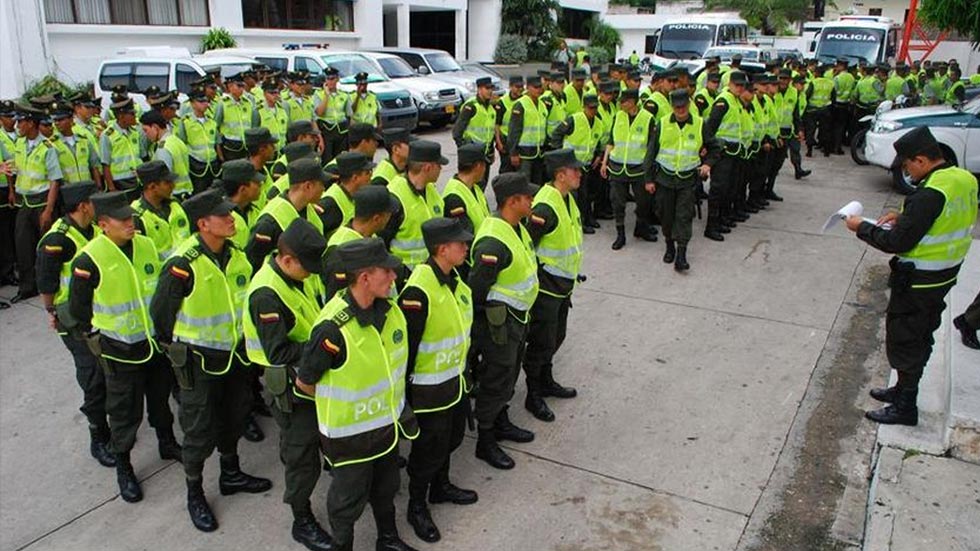Following a number of major corruption and abuse scandals, Colombia’s National Police is reportedly undergoing the biggest purge of allegedly corrupt officials in two decades.
General Jorge Hernando Nieto, who took charge of the police force in February, has set himself on removing the “rotten apples” from his institution to regain the public’s trust.
This trust had been severely damaged after years of widespread corruption and the recent revelations of sexual abuse and illegal spying scandals that cost Nieto’s predecessor, General Rodolfo Palomino, his job.
Nieto is admired for his integrity and single-mindedness, and Nieto’s public frankness about ongoing corruption was unusual for a general, according to weekly Semana.
“I am not going to understate the problems, nor hide them. With the support of the body of generals and the brave work of every one of the country’s 181,920 policemen, I will confront those problems and build a police force that is more human, united, disciplined, innovative and effective, with the single goal of being closer to the citizen.”
General Jorge Hernando Nieto
Upon his inauguration, he immediately acted on his word and proved he was serious about rooting out corruption.
Already over 2,000 members have been sanctioned, suspended or arrested from the force of 180,000, according to Semana.
More is certain to come over the next months, but Nieto insists that the force is capable of purging itself, in spite of its corruption.
“The National Police is capable of leading its own processes of modernization and cleansing. We will put into action new politics of transparency, as an effective mechanism to fight against corruption for the benefit of public opinion.”
General Jorge Hernando Nieto
On Tuesday there was a meeting of the 28 generals of the police force where a list of 600 potentially corrupt members was discussed, according to Semana.
Another 1,000 are expected to be thrown out the organisation over the coming weeks.
This will add to the 1,180 who have already been quietly dismissed over the last months.
Many of the dismissals have to do with a lack of attendance, disobeying orders or negligence.
However, over the last three months a new wave counterintelligence operations against organized crime has resulted in the arrests of 248 members of the police force involved in, for example, drug-trafficking and illegal mining.
Of those, 41 have already been convicted.
There is a risk that those dismissed will simply continue committing the same crimes with paramilitary successor groups or even guerrilla groups, but it is nonetheless essential to root out the corruption in the police force so that it can function effectively.
The last equivalent purge was in 1995 when 11,000 were removed from a force of 80,000. To prevent corruption creeping back in again, recruits must be vetted more carefully, and salaries and career paths must be made attractive enough to reduce the temptation of crime.


